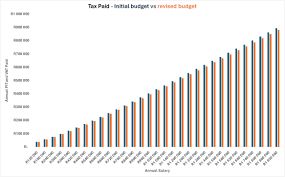Introduction
The Value Added Tax (VAT) in South Africa plays a crucial role in the country’s economy, affecting consumers and businesses alike. As of 2023, South Africa has implemented significant changes to its VAT regulations, aiming to enhance tax compliance and increase government revenue. Understanding these changes is essential for residents and business owners to navigate this evolving financial landscape.
Details of the VAT Changes
In February 2023, the South African Revenue Service (SARS) announced several amendments to the VAT Act that took effect on April 1, 2023. Notably, the VAT rate remains unchanged at 15%, but there are new compliance measures aimed at improving the collection process. Key highlights include:
- Digital Services Tax: The introduction of a VAT system for supplier services from outside South Africa, including digital products, such as e-books and online streaming services.
- Tax Exemptions Adjustments: Some items previously exempt from VAT such as certain basic foodstuffs now have increased compliance requirements, leading businesses to reevaluate their pricing strategies.
- Increased Penalties for Non-compliance: Stricter penalties for businesses failing to register for VAT in a timely manner or misreporting their VAT inputs and outputs.
These changes are expected to boost VAT collections significantly, as they aim to encompass a broader range of transactions that generate revenue for the government.
Impact on Consumers and Businesses
Consumers may notice slight impacts in pricing due to the adjustments in compliance measures and potential increases in operational costs for businesses. Companies selling imported digital services may raise prices to cover VAT costs. On the other hand, increased compliance measures could help level the playing field for domestic businesses by ensuring that all competing entities adhere to the same rules.
Conclusion
The recent VAT changes in South Africa are a pivotal development for the economy. While they pose challenges for some businesses, they also present opportunities for growth and better compliance. Understanding the intricacies of these changes will be crucial for both consumers and businesses in adapting to the new tax environment. Looking ahead, the success of these VAT changes will likely depend on the effectiveness of enforcement by SARS and the ability of businesses to adapt swiftly to the new regulations.


